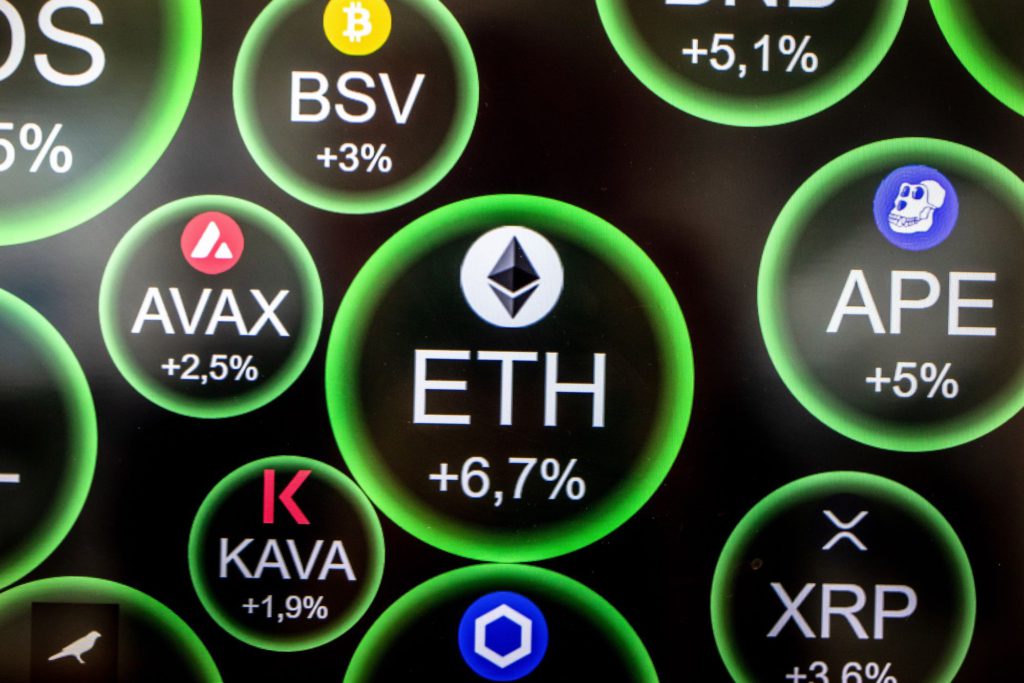Countries should apply the same level of regulation to cryptoassets and their intermediaries as they do to equivalent functions in finance if they are to sufficiently govern the sector, the Financial Stability Board said in two sweeping new reports on Tuesday.
(Bloomberg) — Countries should apply the same level of regulation to cryptoassets and their intermediaries as they do to equivalent functions in finance if they are to sufficiently govern the sector, the Financial Stability Board said in two sweeping new reports on Tuesday.
The FSB, which is set to present its recommendations to G20 finance ministers and central bank governors this week, said watchdogs should apply the overarching approach of “same activity, same risk, same regulation,” regardless of whether a cryptoasset is characterized as a payment, security or other instrument.
Klaas Knot, chair of the FSB, said in a letter to ministers Tuesday that the market’s current downturn had reinforced the threat that crypto can pose, including its intrinsic volatility and interconnectedness across different subsectors.
“Concerns about the risks they pose to financial stability are therefore likely to come back to the fore sooner rather than later, as are public expectations that policy makers have in place a robust international framework to identify, monitor and address those risks,” Knot said.
In a 77-page report with recommendations for cryptoasset regulation, the FSB said it was typical for crypto firms to offer multiple services or activities from a single entity, such as custody, trading, lending and proprietary trading.
It suggested that regulators should consider requiring firms to disaggregate or separate certain functions and activities so that they can better meet existing rules.
“While most of these individual functions exist in traditional finance, typically regulations require that such activities be conducted by different entities and, in some cases subject them to different sectoral standards,” the FSB said.
Regulators should also monitor interdependence between various parts of the crypto ecosystem, it added, as well as how those parts of crypto connect with the wider financial system.
The reports follow months of severe pain within the crypto market, as falling prices and tempered demand contributed to the collapse of several major projects and companies.
The bankruptcy proceedings of crypto lenders Celsius and Voyager were highlighted as examples of the risks that the industry can pose, as well as the demise of the Terra ecosystem and its eponymous stablecoin in May.
- Read more: Crypto’s $2 Trillion Shakeout Portends Lehman Moment
Cryptoasset issuers and service providers should be required have in place and disclose comprehensive governance, risk management and data-reporting frameworks, the report recommended.
Those frameworks should provide for clear and direct lines of responsibility and accountability, the FSB added, touching on a sore point for the sector in which projects have failed without rulemakers knowing who operated core parts of the business.
A second report expanded on earlier recommendations for regulation of stablecoins, digital tokens that aim to maintain a one-on-one value with a less volatile assets such as the euro or dollar.
The FSB said most existing stablecoins would not meet its recommendations at present, requiring “significant improvements” to their governance, risk management, stabilization mechanisms and disclosures.
A rush by different jurisdictions to put in place local stablecoin regulation after Terra’s collapse created challenges for cohesion, the FSB added, hindering consistent oversight and effective cross-border cooperation.
The FSB’s proposals are to be finalized in mid-2023, subject to feedback from consultations on the reports.
The board is also presently analyzing similar developments and potential risks stemming from decentralized finance, it added. Progress made by jurisdictions in implementing the recommendations will be reviewed in 2025.
More stories like this are available on bloomberg.com
©2022 Bloomberg L.P.











